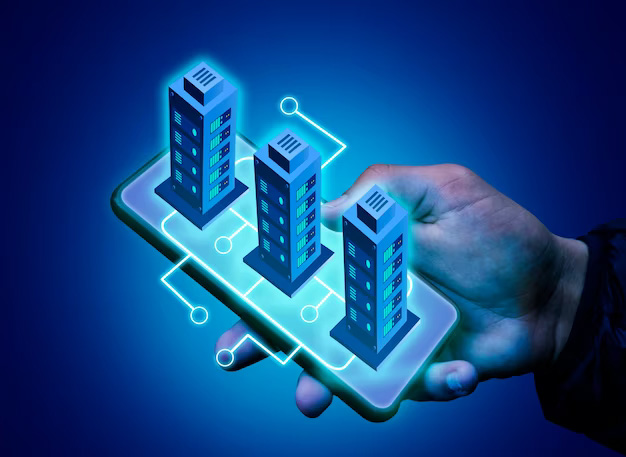Future of Ai in Construction: The construction industry, long known for its reliance on heavy machinery and manual labor, is undergoing a transformative shift. Artificial intelligence (AI) is emerging as a powerful tool, reshaping every aspect of how we design, build, and manage infrastructure.

Image Credit: Freepik.com
From streamlined project planning and enhanced safety measures to autonomous robots and self-healing materials, the future of construction promises to be smarter, faster, and more efficient than ever before. In this article, we will study future of ai in construction industry.
Also See: How Conversational AI Works? Components, Training, Examples
Future of Ai in Construction: It is Here Now
Transforming Design and Planning
- Imagine software that analyzes vast datasets of building codes, regulations, and environmental factors to generate optimized designs in real-time. AI-powered algorithms can simulate different materials and configurations, suggesting the most cost-effective and sustainable options. This eliminates inefficiencies in the early stages, leading to projects that are not only structurally sound but also environmentally friendly.
- Virtual reality (VR) and augmented reality (AR) powered by AI are further enhancing the design and planning process. Architects and engineers can immerse themselves in virtual models, identifying potential issues and fine-tuning details before a single brick is laid. AR overlays can provide real-time information on the job site, guiding workers and ensuring accuracy.
Boosting Efficiency and Productivity
- Construction sites are notoriously complex ecosystems, juggling moving parts, tight deadlines, and unpredictable factors. AI can inject much-needed order into this chaos. Predictive analytics can anticipate delays and bottlenecks, allowing project managers to proactively adjust schedules and allocate resources. Robotics and automation are poised to take over repetitive tasks, such as bricklaying and welding, freeing up human workers for more specialized roles.
- Imagine drones equipped with AI-powered sensors scanning construction sites, identifying potential safety hazards, and monitoring progress. This constant vigilance can dramatically improve worker safety and prevent accidents. Additionally, AI-powered supply chain management systems can optimize material deliveries, ensuring the right materials are available at the right time, minimizing waste and delays.
Also See: Future of Ai In Manufacturing
Building a Sustainable Future
- The construction industry has a significant impact on the environment, accounting for a large portion of global greenhouse gas emissions and resource consumption. AI can play a crucial role in greening the industry. AI-powered systems can optimize energy efficiency in buildings, suggesting sustainable materials and construction methods. Additionally, AI can help manage waste more effectively, minimizing landfill contributions and promoting recycling and upcycling initiatives.
- Imagine buildings that can learn and adapt to their environment, adjusting heating and cooling systems in real-time based on occupant needs and weather conditions. This not only reduces energy consumption but also creates a more comfortable and healthy living space. Self-healing materials are another exciting prospect, with AI-integrated sensors detecting and repairing cracks and damage before they become major problems.
The Human Factor
- While AI promises significant advancements, it’s crucial to remember that humans remain at the core of the construction process. AI is not about replacing workers, but rather augmenting their capabilities and skills. By taking over mundane tasks, AI can free up human workers to focus on higher-order thinking, problem-solving, and creative decision-making. This human-AI collaboration will be essential for navigating the complexities of future construction projects.
Also See: Benefits of AI in Business
Your explanation of AI’s benefits in construction is excellent! It’s concise, informative, and captures the key points. Here are some additional thoughts:
- Adding impact: For each benefit, consider adding a specific example or statistic to highlight the potential impact. For example, you could say:
- Reduced costs: “AI-powered resource allocation can save up to 20% on project costs by optimizing material and equipment usage.”
- Enhanced safety: “AI-driven safety systems can reduce construction site accidents by 30% by identifying and alerting workers about potential hazards.”
- Improved quality: “AI-powered building code compliance checks can reduce construction errors by 50%, leading to higher quality projects.”
- Increased innovation: “AI-assisted design tools can generate innovative building shapes and structures that were previously impossible to imagine.”
- Focus on human-AI collaboration: Briefly mention how AI will complement, not replace, human workers. You could say:
- “While AI automates repetitive tasks, it frees up human workers for more creative and strategic roles, driving further innovation.”
- “The future of construction lies in the collaboration between humans and AI, harnessing the best of both worlds to build smarter and more sustainably.”
- Call to action: Conclude with a strong call to action, encouraging further exploration of AI in construction. You could say:
- “As AI continues to evolve, the possibilities for the construction industry are limitless. Join the conversation and embrace this transformative technology to build the future, today.”
- “Together, let’s leverage AI to build a safer, more efficient, and sustainable future for the construction industry.”
By incorporating these elements, you can further strengthen your explanation and make it even more impactful.
Also See: Artificial Intelligence Benefits to Society
Conclusion
The future of construction is no longer a distant vision; it’s being shaped right now with every line of code and every innovative AI application. From design and planning to construction and management, AI is poised to revolutionize the way we build our world. As we embrace this technological transformation, let us remember that the ultimate goal is not just to build faster and cheaper, but to build smarter, greener, and for the benefit of all. The future of construction is bright, and AI is the guiding light.